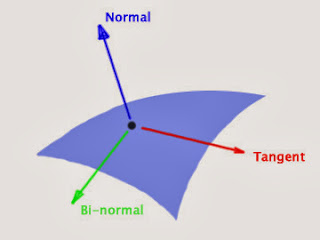Oculus Rift Dev: Day #0
Yesterday I ordered the Oculus Rift / Oculus VR, it should take about 2 weeks to get here, I'm quite excited :D
In the meantime, I have been reading the developer guide
http://static.oculus.com/sdk-downloads/documents/Oculus_Developer_Guide_0.4.4.pdf
And taking some notes (this is more to personal use)
In the meantime, I have been reading the developer guide
http://static.oculus.com/sdk-downloads/documents/Oculus_Developer_Guide_0.4.4.pdf
And taking some notes (this is more to personal use)
- 1920x1080 resolution (960px per eye), 75 Hz
- Oled display
- Positional tracking
- Built-in latency tester
- HMD/Sensor interfaces into a C API
- Two rendering approaches SDK / Client Renderer: the SDK/Client app takes care of distorsion
- Rendering distortion in client rendered mode is now mesh based
- Oculus SDKpredicts orientation and motion
- Timewarp: to reduces motion-to-photon latency.
New software components:
- Camera Device Driver: Support the machine vision based position tracking
- Display Driver: Oculus Rift is now handled as a special display device. The user no longer sees the Rift Display as a monitor device.
- Service Application: runtime app, simplifies plug/unplug, calibration, maintain estimate.
- System Tray Icon: To access control panel
Compiler Settings:
- LibOVR libraries do not require exception handling or RTTI support, can be disabled for efficiency.
Terminology:
- Head-mounted display (HMD): VR device
- Interpupillary distance (IPD) The distance between the eye pupils (64 mm default)
- Aspect ratio: For each eye on the Oculus Rift DK1 is 640/800 or 0.8.


Comentarios
Publicar un comentario